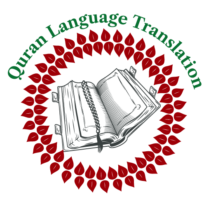Chapter 1
Chapter: One who frees his share of a slave
باب مَنْ أَعْتَقَ شِرْكًا لَهُ فِي عَبْدٍ
Ibn Umar (Allah be pleased with them) reported Allah's Messenger may peace be upon him) as saying:If anyone emancipates his share ina slave and has enough money to pay the full price for him, a fair price for the slave should be fixed, his partners given their shares, and the slave be thus emancipated, otherwise he is emancipated only to the extent of the first man's share.
حَدَّثَنَا يَحْيَى بْنُ يَحْيَى، قَالَ قُلْتُ لِمَالِكٍ حَدَّثَكَ نَافِعٌ، عَنِ ابْنِ عُمَرَ، قَالَ قَالَ رَسُولُ اللَّهِ صلى الله عليه وسلم مَنْ أَعْتَقَ شِرْكًا لَهُ فِي عَبْدٍ فَكَانَ لَهُ مَالٌ يَبْلُغُ ثَمَنَ الْعَبْدِ قُوِّمَ عَلَيْهِ قِيمَةَ الْعَدْلِ فَأُعْطِيَ شُرَكَاؤُهُ حِصَصَهُمْ وَعَتَقَ عَلَيْهِ الْعَبْدُ وَإِلاَّ فَقَدْ عَتَقَ مِنْهُ مَا عَتَقَ" .
Chapter 2
Chapter: A slave working to pay off the other half
باب ذِكْرِ سِعَايَةِ الْعَبْدِ
This hadith has been reported on the authority of Ibn 'Umar through another chain of transmitters.
وَحَدَّثَنَاهُ قُتَيْبَةُ بْنُ سَعِيدٍ، وَمُحَمَّدُ بْنُ رُمْحٍ، جَمِيعًا عَنِ اللَّيْثِ بْنِ سَعْدٍ، ح وَحَدَّثَنَا شَيْبَانُ بْنُ فَرُّوخَ، حَدَّثَنَا جَرِيرُ بْنُ حَازِمٍ، ح وَحَدَّثَنَا أَبُو الرَّبِيعِ، وَأَبُو كَامِلٍ قَالاَ حَدَّثَنَا حَمَّادٌ، حَدَّثَنَا أَيُّوبُ، ح وَحَدَّثَنَا ابْنُ نُمَيْرٍ، حَدَّثَنَا أَبِي، حَدَّثَنَا عُبَيْدُ اللَّهِ، ح وَحَدَّثَنَا مُحَمَّدُ بْنُ، الْمُثَنَّى حَدَّثَنَا عَبْدُ الْوَهَّابِ، قَالَ سَمِعْتُ يَحْيَى بْنَ سَعِيدٍ، ح وَحَدَّثَنِي إِسْحَاقُ بْنُ مَنْصُورٍ، أَخْبَرَنَا عَبْدُ الرَّزَّاقِ، عَنِ ابْنِ جُرَيْجٍ، أَخْبَرَنِي إِسْمَاعِيلُ بْنُ أُمَيَّةَ، ح وَحَدَّثَنَا هَارُونُ بْنُ سَعِيدٍ، الأَيْلِيُّ حَدَّثَنَا ابْنُ وَهْبٍ، أَخْبَرَنِي أُسَامَةُ، ح وَحَدَّثَنَا مُحَمَّدُ بْنُ رَافِعٍ، حَدَّثَنَا ابْنُ أَبِي فُدَيْكٍ، عَنِ ابْنِ أَبِي ذِئْبٍ، كُلُّ هَؤُلاَءِ عَنْ نَافِعٍ، عَنِ ابْنِ عُمَرَ، بِمَعْنَى حَدِيثِ مَالِكٍ عَنْ نَافِعٍ.
Chapter 3
Chapter: Al-Wala' (Right of inheritance) belongs to the one who manumits the slave
باب إِنَّمَا الْوَلاَءُ لِمَنْ أَعْتَقَ
Abu Huraira (Allah be pleased with him) reported Allah's Messenger (ﷺ) as saying:The slave who is jointly owned by two persons, and is emancipated by one of them, (this one) has liability (upon him to secure complete freedom for that slave).
وَحَدَّثَنَا مُحَمَّدُ بْنُ الْمُثَنَّى، وَابْنُ، بَشَّارٍ - وَاللَّفْظُ لاِبْنِ الْمُثَنَّى - قَالاَ حَدَّثَنَا مُحَمَّدُ، بْنُ جَعْفَرٍ حَدَّثَنَا شُعْبَةُ، عَنْ قَتَادَةَ، عَنِ النَّضْرِ بْنِ أَنَسٍ، عَنْ بَشِيرِ بْنِ نَهِيكٍ، عَنْ أَبِي هُرَيْرَةَ، عَنِ النَّبِيِّ صلى الله عليه وسلم قَالَ فِي الْمَمْلُوكِ بَيْنَ الرَّجُلَيْنِ فَيُعْتِقُ أَحَدُهُمَا قَالَ يَضْمَنُ" .
Chapter 4
Chapter: The prohibition of selling or giving away the wala'
باب النَّهْىِ عَنْ بَيْعِ الْوَلاَءِ، وَهِبَتِهِ،
Abu Huraira (Allah be pleased witli him) reported Allah's Prophet (ﷺ) as saying:If anyone emancipates a share in a slave, he is to be completely emancipated if he has money; but if he has none, the slave will be required to work to pay for his freedom, but must not be over-burhened.
وَحَدَّثَنِي عَمْرٌو النَّاقِدُ، حَدَّثَنَا إِسْمَاعِيلُ بْنُ إِبْرَاهِيمَ، عَنِ ابْنِ أَبِي عَرُوبَةَ، عَنْ قَتَادَةَ، عَنِ النَّضْرِ بْنِ أَنَسٍ، عَنْ بَشِيرِ بْنِ نَهِيكٍ، عَنْ أَبِي هُرَيْرَةَ، عَنِ النَّبِيِّ صلى الله عليه وسلم قَالَ مَنْ أَعْتَقَ شِقْصًا لَهُ فِي عَبْدٍ فَخَلاَصُهُ فِي مَالِهِ إِنْ كَانَ لَهُ مَالٌ فَإِنْ لَمْ يَكُنْ لَهُ مَالٌ اسْتُسْعِيَ الْعَبْدُ غَيْرَ مَشْقُوقٍ عَلَيْهِ " .
Chapter 5
Chapter: The prohibition of a manumitted slave taking anyone as a Mawla except the one who manumitted him
باب تَحْرِيمِ تَوَلِّي الْعَتِيقِ غَيْرَ مَوَالِيهِ
This hadith has been narrated on the authority of Sa'id b. Abu 'Aruba with the same chain of transmitters but with the addition:" If he (one of the joint owners emancipating the slave) has not (enough) money (to secure freedom for the other half) a fair price for the slave should be fixed, and he will be required to work to pay for his freedom, but must not be over-burdened.
وَحَدَّثَنَاهُ عَلِيُّ بْنُ خَشْرَمٍ، أَخْبَرَنَا عِيسَى، - يَعْنِي ابْنَ يُونُسَ - عَنْ سَعِيدِ بْنِ، أَبِي عَرُوبَةَ بِهَذَا الإِسْنَادِ وَزَادَ إِنْ لَمْ يَكُنْ لَهُ مَالٌ قُوِّمَ عَلَيْهِ الْعَبْدُ قِيمَةَ عَدْلٍ ثُمَّ يُسْتَسْعَى فِي نَصِيبِ الَّذِي لَمْ يُعْتِقْ غَيْرَ مَشْقُوقٍ عَلَيْهِ " .
Chapter 6
Chapter: The virtue of manumitting slaves
باب فَضْلِ الْعِتْقِ
A hadith like this is reported on the authority of the same chain of transmitters but with a slight change of words.
حَدَّثَنِي هَارُونُ بْنُ عَبْدِ اللَّهِ، حَدَّثَنَا وَهْبُ بْنُ جَرِيرٍ، حَدَّثَنَا أَبِي قَالَ، سَمِعْتُ قَتَادَةَ، يُحَدِّثُ بِهَذَا الإِسْنَادِ بِمَعْنَى حَدِيثِ ابْنِ أَبِي عَرُوبَةَ وَذَكَرَ فِي الْحَدِيثِ قُوِّمَ عَلَيْهِ قِيمَةَ عَدْلٍ.
Chapter 7
Chapter: The virtue of manumitting one's father
باب فَضْلِ عِتْقِ الْوَالِدِ
Ibn Umar reported that 'A'isha decided to buy a slave-girl and then set her free, but her masters said:We are prepared to sell her to you on the condition that her right of inheritance would vest with you. She (Hadrat A'isha) made a mention of that to Allah's Messenger (ﷺ) whereupon he said: This should not stand in your way. The right of inheritance vests in one who emancipates.
وَحَدَّثَنَا يَحْيَى بْنُ يَحْيَى، قَالَ قَرَأْتُ عَلَى مَالِكٍ عَنْ نَافِعٍ، عَنِ ابْنِ عُمَرَ، عَنْ عَائِشَةَ، أَنَّهَا أَرَادَتْ أَنْ تَشْتَرِيَ، جَارِيَةً تُعْتِقُهَا فَقَالَ أَهْلُهَا نَبِيعُكِهَا عَلَى أَنَّ وَلاَءَهَا لَنَا . فَذَكَرَتْ ذَلِكَ لِرَسُولِ اللَّهِ صلى الله عليه وسلم فَقَالَ لاَ يَمْنَعُكِ ذَلِكَ فَإِنَّمَا الْوَلاَءُ لِمَنْ أَعْتَقَ " .
